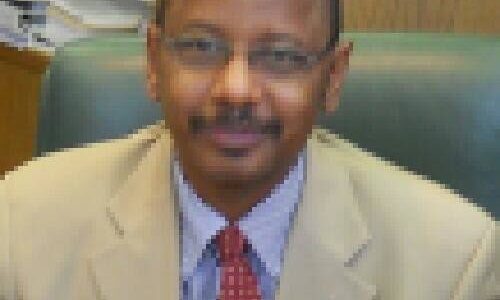
The Federal Government has inaugurated an eight-man inter-ministerial committee to investigate the activities of private universities established in the last 15 years.
The committee, headed by Professor J.D. Amin as chairman, is also mandated to probe degree certificate racketeering by both foreign and local universities in Nigeria.

The Minister of Education, Professor Tahir Mamman, SAN, who inaugurated the inter-ministerial committee on degree mills in the country on Tuesday in Abuja, said this would help sanitise the system and protect the integrity of educational qualifications in Nigeria.
Mamman also vowed that all workers who had acquired fake certificates from both local and foreign institutions, as would be unravelled by the panel, would be sacked and made to face the wrath of the law.

Recall that the issue of ‘degree mills’ once again came to the fore following an investigative report by an undercover journalist, Umar Audu, with an online newspaper, detailing how he obtained a degree within six weeks and even proceeded to embark on the mandatory one-year national youth service under the National Youth Service Corps (NYSC) scheme.
He noted that the committee would help identify some of the private universities in the country after getting licences as a means of operating outside the law so that the force of the law could be brought on them.
“The next step will be if the committee can uncover those institutions and those who participated because I won’t say they are victims or graduates; we will chase them out of the system because they are not qualified to work in the system, and we will make them face the wrath of the law,” he said.
The Minister said the assignment was a very serious one and tasked members of the committee to do their job diligently without fear of anyone, saying the ministry was solidly behind them. He added that the exercise was not to witch-hunt anyone.
The committee, which has Professor J.D. Amin, the Chairman of the Board of Trustees (BOT) Committee of Vice Chancellors of Nigerian Universities, has Mr. Chris Maiyaki, the acting Executive Secretary, National Universities Commission (NUC), as a member.
Other members of the committee are Amb. Lazarus Kpasaba from the Ministry of Foreign Affairs; Abel Olarenwaju, Office of the National Security Advisor; Omeh Nwokpoku, Office of the National Security Advisor; Amina Lugga, Federal Ministry of Youth and Development; Mrs. Doom Iyortyom, Joint Admissions and Matriculation Board (JAMB); and a representative from the Federal Ministry of Justice.
According to the terms of reference read to the members of the inter-ministerial committee, Mamman urged them to look into the activities of illegal universities and examine the veracity of the allegations of degree certificate racketeering within both foreign and local private universities in Nigeria.
They were also mandated to “Review the role of any MDA or its officials (including identifying such officials) in the facilitation of the recognition and procurement of the fake certificate in question;
“Review existing policies and procedures related to accreditation and certification to identify weaknesses contributing to the issue; examine the rules, procedures, and processes for recognition and accreditation of foreign universities and programmes by the Federal Ministry of Education.
“Establish if unapproved foreign institutions (Degree Mills) exist or not in Nigeria in whatever form, with their identities and locations if any;
“Make appropriate recommendations for review of any rules, procedures, and processes to prevent re-occurrence and sanctions for identified erring officials;
“Make other recommendations that will strengthen the system of recognitions, accreditations, and quality assurance of degrees in Nigeria.
“Examine the extant rules, procedures, and processes for granting provisional licences to new universities by the National Universities Commission.
“Examine the procedures and processes for periodic accreditation of programmes in the universities by the NUC and examine their effectiveness in quality assurance of the programmes;
“Without prejudice to the periodic accreditation exercise of the NUC, examine whether or not private universities established in the last 15 years have in place prescribed facilities, an appropriate management structure, adequate funding of programmes, and requisite staff (nature of staff: full-time, contract, adjunct, visiting, other types).”
He noted that it was a good thing that Nigerians are all over the world seeking foreign qualifications, noting, however, that the certification must be of quality and meet global standards.
He added that to address the challenge of access in Nigeria, the Federal Government has, since 2009, approved over 146 private universities in addition to federal and state universities to cater for the teeming population seeking university education.
“This is a very big number that will help provide access to our teeming citizens who want to have university education, apart from polytechnics, colleges of education, and other tertiary institutions,” he said.
Credit: Nigerian Tribune
